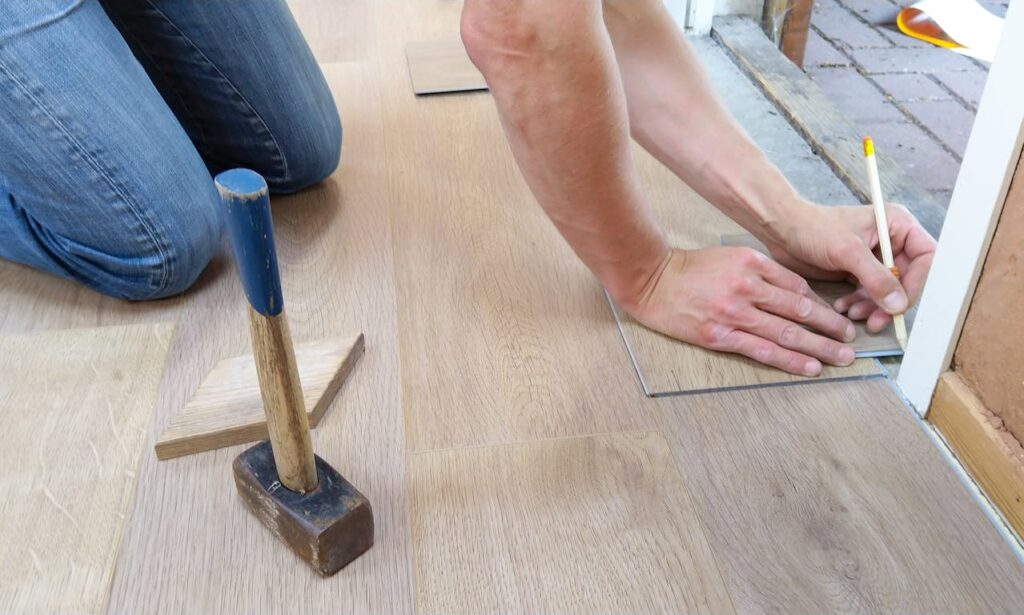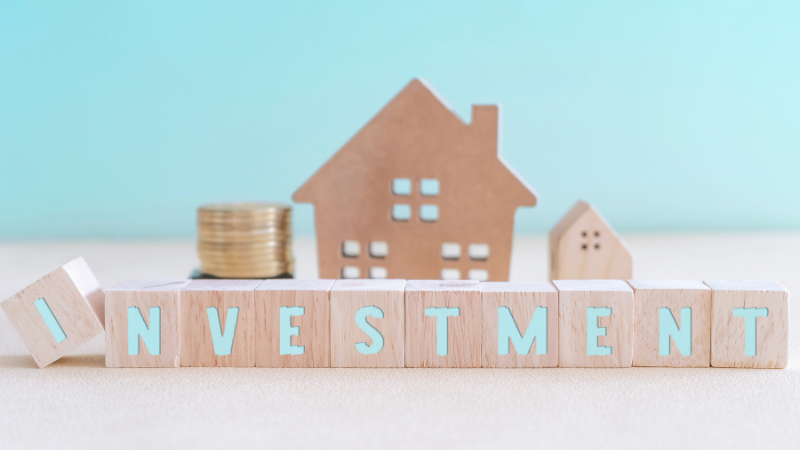While the world of real estate investing can certainly be a lucrative one, it often involves making strategic financial decisions – one of which is leveraging a home equity loan on an investment property. For real estate investors who have built up equity in their investment properties, a home equity loan can unlock cash for other investment opportunities, property renovations, or miscellaneous needs. Since the pandemic, we’ve seen the highest home price growth – 18.5% from 2021 to 2022 – across the U.S. in 31 years. With those numbers, chances are, you may have a significant chunk of equity built up and locked away in your investment property.
By the end of this guide, you’ll have a solid understanding of everything you need to know about getting a home equity loan on an investment property, so you can make an informed decision.
Can You Get a Home Equity Loan on an Investment Property?
Absolutely! You can get a home equity loan on an investment property. With traditional lenders, the requirements for a home equity loan on an investment property can be more strict than on a primary residence. However, private mortgage lenders, like Defy, provide more flexible qualification criteria to cater to a wider range of people, including real estate investors.
Next, we’ll dive a bit deeper into how these loans work, qualification requirements, and pros and cons.
What Is a Home Equity Loan?
A home equity loan is a type of loan that allows homeowners to borrow money against the equity they have built up in their property. Equity is the difference between your home’s current market value and the outstanding balance on your mortgage, which is then used to determine your maximum loan amount. Home equity loans provide a lump sum of cash that is repaid over a fixed term with regular monthly payments, similar to a traditional loan.
How Does Getting a Home Equity Loan on an Investment Property Work?
Getting a home equity loan on an investment property involves using the equity you’ve built up in the property as collateral to secure a loan. The fixed monthly loan payments will include both interest and principal.
It’s important to note that home equity loans are an additional loan taken out on a property that already has an existing mortgage, which means the payments are separate from mortgage payments. Because of this, home equity loans are considered second mortgages. The original mortgage remains the first lien on the property, while the home equity loan becomes the second lien.
Common Reasons for Getting a Home Equity Loan
Home equity loans are suitable for one-time, large expenses since the funds are given to you as a lump sum. Some of the most common reasons include:
- Home Improvements: Upgrading the kitchen, bathroom, or adding a room can increase your home’s value.
- Debt Consolidation: Combining high-interest debts into a lower-interest home equity loan can save money.
- Major Purchases: Funding large personal expenses like a car, college tuition, or medical bills.
- Investment Opportunities: Investing in rental properties, stocks, or businesses.
- Emergency Funds: Creating a financial safety net for unexpected expenses.
Remember to carefully consider your financial situation and the long-term implications before taking out a home equity loan.

Home Equity Loan vs. HELOC vs. Cash-Out Refinance: What’s the Difference?
A home equity loan, a home equity line of credit (HELOC), and a cash-out refinance are all tools to tap into your home equity, but they differ in several ways. Here’s a breakdown of the differences:
Home Equity Loan
- Structure: Provides a lump sum of money that is repaid with fixed monthly payments over a set term, similar to a traditional mortgage.
- Interest Rates: Typically have fixed interest rates, meaning your monthly payments remain consistent throughout the loan term.
- Purpose: Suitable for borrowers who need a large, one-time amount of money for specific purposes like home renovations or debt consolidation.
Home Equity Line of Credit (HELOC)
- Structure: Functions like a credit card, providing a revolving line of credit that you can draw from as needed up to a certain limit. You only pay interest on the amount you borrow.
- Interest Rates: Usually have variable interest rates, which can result in fluctuating monthly payments.
- Purpose: Ideal for ongoing expenses or projects where you need access to funds over time, such as recurring home improvements or covering irregular expenses.
Cash-Out Refinance
- Structure: Involves refinancing your existing mortgage for more than you currently owe and taking the difference in cash. This creates a new mortgage with potentially different terms.
- Interest Rates: Can have fixed or variable interest rates, depending on the terms of the new mortgage. Often, the interest rates are lower than those for home equity loans or HELOCs because the loan is structured as a primary mortgage.
- Purpose: Suitable for borrowers looking to refinance their existing mortgage while also accessing a lump sum of cash, often used for significant expenses like large-scale renovations, debt consolidation, or investment opportunities.
Each option has its benefits and drawbacks, so the best choice depends on your specific financial situation, needs, and goals.
Requirements for Getting a Home Equity Loan on an Investment Property
The requirements for a home equity loan on an investment property depend on the lender, but generally, these are the common criteria:
- Credit Score: A good credit score is usually required, typically 620 or above.
- Loan-to-Value (LTV) Ratio: Lenders typically prefer a lower LTV ratio, meaning you’ll need more equity in the property. Aim to have 20-30% equity in the property, which ensures that there’s sufficient collateral to secure the loan.
- Debt-to-Income (DTI) Ratio: Your DTI ratio, which compares your monthly debt payments to your income, should be relatively low. Generally, a DTI of below 43% is ideal.
- Income Verification: Lenders will assess your income, including the property’s rental income to determine its cash flow potential.
- Property Appraisal: An appraisal is required to determine the property’s current market value.
- Cash Reserves: You may need to demonstrate sufficient cash reserves to cover potential rental vacancies or property expenses.
If you’re looking for exact requirements, make sure to contact lenders directly to get a better idea of what you’ll need to qualify.
Pros and Cons of Getting a Home Equity Loan on an Investment Property
Pros:
- Unlock the built-up equity in your investment property
- Access to cash for various purposes
- Leverage your investment property equity to further invest in real estate or other opportunities
- Secured loan, which typically results in lower interest rates compared to unsecured loans
- Potential tax benefits depending on what funds are used for
Cons:
- Potential to be over-leveraged
- Market risk that could affect the value of your home
- Reduces home equity

How to Get a Home Equity Loan on an Investment Property
- Evaluate Your Eligibility
First, you should determine whether you’d be eligible for a home equity loan by evaluating your financial standing. You can calculate your property’s equity by subtracting the outstanding mortgage balance from the current market value. This will give you a clear picture of how much you can potentially borrow. On top of that, a strong credit score can make or break your loan approval. Carefully review your credit report for any errors and take necessary steps to improve your score if needed.
- Gather Relevant Documents
To speed up the loan application process, start gathering essential financial documents early. This typically includes bank statements, tax returns, proof of rental income, and more depending on the lender. These documents provide lenders with an overview of your finances and help them assess your eligibility.
- Find a Lender
Finding the right lender is an essential step. Keep in mind that not all lenders offer home equity loans for investment properties. Make sure to do your research and find a lender that offers interest rates, repayment terms, and fees that are suitable for you. When looking for a lender, consider partnering with a private mortgage lender, like Defy. Private mortgage lenders typically have more flexible qualification criteria and customizable loan solutions to fit a wide range of needs.
- Apply for the Loan
Once you’ve gathered the necessary documents, it’s time to complete the loan application. This involves filling out the lender’s application form and providing all required paperwork. Be prepared to submit detailed information about your financial situation, property ownership, and rental income.
- Underwriting and Appraisal
The lender will carefully evaluate your loan application through a process called underwriting. This involves assessing your financial profile, including income, debt, and credit history. They’ll also determine the property’s value, which may require a professional appraisal. The rental income generated by the property will also be a key factor in the lender’s decision-making process.
- Loan Approval and Offer
After the underwriting process, you’ll receive a notification from the lender regarding your loan application. If approved, you’ll be presented with the loan terms, including the interest rate, repayment schedule, and any additional fees. Unfortunately, if your application is denied, the lender will typically provide an explanation for the decision, which can be helpful in addressing any issues for future loan applications.
- Closing the Loan
Once your loan is approved, the closing process begins. This involves signing the loan documents and providing any additional paperwork required by the lender. After successfully completing the closing, the loan funds will be disbursed to your account. Congratulations! You’ve successfully secured a home equity loan on your investment property.
Should You Get a Home Equity Loan on an Investment Property?
Getting a home equity loan for an investment property is a big financial decision that requires careful consideration. Even though it can provide a valuable source of cash for things like property improvements, purchasing another property, or covering unexpected expenses, it can come with risks. Risks include the potential for market fluctuations and foreclosure if you’re not able to meet the monthly payments. Beyond the risks, other factors to consider include the interest rate, loan terms, and your ability to comfortably manage the additional monthly payment. Remember that overextending yourself financially could negatively impact your financial goals in the long run, so it’s important to create a well-thought-out financial plan before making a decision.

Home Equity Loan on Investment Property FAQs:
- Is it possible to get a home equity loan on an investment property?
Yes! It’s possible to get a home equity loan on an investment property.
- How does a home equity loan on an investment property work?
A home equity loan on an investment property works similarly to a standard home equity loan, but you’re borrowing against the equity in your rental property instead of your primary residence. The loan is typically secured by the investment property and repaid in fixed monthly installments over a set term.
- What can I use a home equity loan on an investment property for?
You can use a home equity loan on an investment property for several different purposes, including property renovations, buying additional investment properties, or covering unexpected expenses.
- What’s required to qualify for a home equity loan on an investment property?
To qualify for a home equity loan on an investment property, you generally need a credit score of 620 or higher and at least 20-30% equity in the property. Depending on the lender, they may also consider the property’s rental income and overall financial performance.
- How much equity do I need to refinance an investment property?
The amount of equity required to refinance an investment property varies by lender, but typically you’ll need at least 20-30% equity in the property.
- What are the pros and cons of getting a home equity loan on an investment property?
Pros:
- Unlock the built-up equity in your investment property
- Access to cash for various purposes
- Leverage your investment property equity to further invest in real estate or other opportunities
- Secured loan, which typically results in lower interest rates compared to unsecured loans
- Potential tax benefits depending on what funds are used for
Cons:
- Potential to be over-leveraged
- Market risk that could affect the value of your home
- Reduces home equity
- Can I get a home equity loan to cover rental property expenses?
Yes, you can use a home equity loan to cover rental property expenses such as repairs, upgrades, or maintenance. However, home equity loans are generally more suitable for one-time costs rather than ongoing expenses.
- What are some alternatives to a home equity loan on an investment property?
Alternatives to a home equity loan on an investment property include a home equity line of credit (HELOC) or a cash-out refinance. All three options allow you to tap into your home equity. Depending on what you plan to use the money for, one may be more suitable than another.
- Where can I get an investment property home equity loan?
You can get a home equity loan on an investment property from a wide range of lenders, including banks, credit unions, and private mortgage lenders. If you’re looking for a flexible home equity loan solution, consider private mortgage lenders, like Defy.




